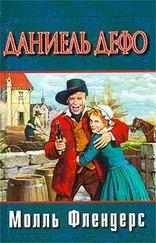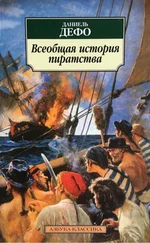Даниэль Дефо - History of the Plague in London
Здесь есть возможность читать онлайн «Даниэль Дефо - History of the Plague in London» весь текст электронной книги совершенно бесплатно (целиком полную версию без сокращений). В некоторых случаях можно слушать аудио, скачать через торрент в формате fb2 и присутствует краткое содержание. Год выпуска: 2014, Издательство: epubBooks Classics, Жанр: Историческая проза, на английском языке. Описание произведения, (предисловие) а так же отзывы посетителей доступны на портале библиотеки ЛибКат.
- Название:History of the Plague in London
- Автор:
- Издательство:epubBooks Classics
- Жанр:
- Год:2014
- ISBN:нет данных
- Рейтинг книги:4 / 5. Голосов: 1
-
Избранное:Добавить в избранное
- Отзывы:
-
Ваша оценка:
- 80
- 1
- 2
- 3
- 4
- 5
History of the Plague in London: краткое содержание, описание и аннотация
Предлагаем к чтению аннотацию, описание, краткое содержание или предисловие (зависит от того, что написал сам автор книги «History of the Plague in London»). Если вы не нашли необходимую информацию о книге — напишите в комментариях, мы постараемся отыскать её.
History of the Plague in London — читать онлайн бесплатно полную книгу (весь текст) целиком
Ниже представлен текст книги, разбитый по страницам. Система сохранения места последней прочитанной страницы, позволяет с удобством читать онлайн бесплатно книгу «History of the Plague in London», без необходимости каждый раз заново искать на чём Вы остановились. Поставьте закладку, и сможете в любой момент перейти на страницу, на которой закончили чтение.
Интервал:
Закладка:
It was a fortnight after this before the two brothers met again, and then the case was a little altered, and the plague was exceedingly advanced, and the number greatly increased. The bill was up at 2,785, and prodigiously increasing; though still both sides of the river, as below, kept pretty well. But some began to die in Redriff, and about five or six in Ratcliff Highway, when the sailmaker came to his brother John, express, [190] With speed, in haste.
and in some fright; for he was absolutely warned out of his lodging, and had only a week to provide himself. His brother John was in as bad a case, for he was quite out, and had only [191] This word is misplaced. It should go immediately before "to lodge."
begged leave of his master, the biscuit baker, to lodge in an outhouse belonging to his workhouse, where he only lay upon straw, with some biscuit sacks, or "bread sacks," as they called them, laid upon it, and some of the same sacks to cover him.
Here they resolved, seeing all employment being at an end, and no work or wages to be had, they would make the best of their way to get out of the reach of the dreadful infection, and, being as good husbands as they could, would endeavor to live upon what they had as long as it would last, and then work for more, if they could get work anywhere of any kind, let it be what it would.
While they were considering to put this resolution in practice in the best manner they could, the third man, who was acquainted very well with the sailmaker, came to know of the design, and got leave to be one of the number; and thus they prepared to set out.
III
It happened that they had not an equal share of money; but as the sailmaker, who had the best stock, was, besides his being lame, the most unfit to expect to get anything by working in the country, so he was content that what money they had should all go into one public stock, on condition that whatever any one of them could gain more than another, it should, without any grudging, be all added to the public stock.
They resolved to load themselves with as little baggage as possible, because they resolved at first to travel on foot, and to go a great way, that they might, if possible, be effectually safe. And a great many consultations they had with themselves before they could agree about what way they should travel; which they were so far from adjusting, that, even to the morning they set out, they were not resolved on it.
At last the seaman put in a hint that determined it. "First," says he, "the weather is very hot; and therefore I am for traveling north, that we may not have the sun upon our faces, and beating upon our breasts, which will heat and suffocate us; and I have been told," says he, "that it is not good to overheat our blood at a time when, for aught we know, the infection may be in the very air. In the next place," says he, "I am for going the way that may be contrary to the wind as it may blow when we set out, that we may not have the wind blow the air of the city on our backs as we go." These two cautions were approved of, if it could be brought so to hit that the wind might not be in the south when they set out to go north.
John the baker, who had been a soldier, then put in his opinion. "First," says he, "we none of us expect to get any lodging on the road, and it will be a little too hard to lie just in the open air. Though it may be warm weather, yet it may be wet and damp, and we have a double reason to take care of our healths at such a time as this; and therefore," says he, "you, brother Tom, that are a sailmaker, might easily make us a little tent; and I will undertake to set it up every night and take it down, and a fig for all the inns in England. If we have a good tent over our heads, we shall do well enough."
The joiner opposed this, and told them, let them leave that to him: he would undertake to build them a house every night with his hatchet and mallet, though he had no other tools, which should be fully to their satisfaction, and as good as a tent.
The soldier and the joiner disputed that point some time; but at last the soldier carried it for a tent: the only objection against it was, that it must be carried with them, and that would increase their baggage too much, the weather being hot. But the sailmaker had a piece of good hap [192] Luck.
fall in, which made that easy; for his master who [193] Whom.
he worked for, having a ropewalk, as well as sailmaking trade, had a little poor horse that he made no use of then, and, being willing to assist the three honest men, he gave them the horse for the carrying their baggage; also, for a small matter of three days' work that his man did for him before he went, he let him have an old topgallant sail [194] A small sail set high upon the mast.
that was worn out, but was sufficient, and more than enough, to make a very good tent. The soldier showed how to shape it, and they soon, by his direction, made their tent, and fitted it with poles or staves for the purpose: and thus they were furnished for their journey; viz., three men, one tent, one horse, one gun for the soldier (who would not go without arms, for now he said he was no more a biscuit baker, but a trooper). The joiner had a small bag of tools, such as might be useful if he should get any work abroad, as well for their subsistence as his own. What money they had they brought all into one public stock, and thus they began their journey. It seems that in the morning when they set out, the wind blew, as the sailor said, by his pocket compass, at N.W. by W., so they directed, or rather resolved to direct, their course N.W.
But then a difficulty came in their way, that as they set out from the hither end of Wapping, near the Hermitage, and that the plague was now very violent, especially on the north side of the city, as in Shoreditch and Cripplegate Parish, they did not think it safe for them to go near those parts: so they went away east, through Ratcliff Highway, as far as Ratcliff Cross, and leaving Stepney church still on their left hand, being afraid to come up from Ratcliff Cross to Mile End, because they must come just by the churchyard, and because the wind, that seemed to blow more from the west, blowed directly from the side of the city where the plague was hottest. So, I say, leaving Stepney, they fetched a long compass, [195] "Fetched a long compass," i.e., went by a circuitous route.
and, going to Poplar and Bromley, came into the great road just at Bow.
Here the watch placed upon Bow Bridge would have questioned them; but they, crossing the road into a narrow way that turns out of the higher end of the town of Bow to Oldford, avoided any inquiry there, and traveled on to Oldford. The constables everywhere were upon their guard, not so much, it seems, to stop people passing by, as to stop them from taking up their abode in their towns; and, withal, because of a report that was newly raised at that time, and that indeed was not very improbable, viz., that the poor people in London, being distressed and starved for want of work, and by that means for want of bread, were up in arms, and had raised a tumult, and that they would come out to all the towns round to plunder for bread. This, I say, was only a rumor, and it was very well it was no more; but it was not so far off from being a reality as it has been thought, for in a few weeks more the poor people became so desperate by the calamity they suffered, that they were with great difficulty kept from running out into the fields and towns, and tearing all in pieces wherever they came. And, as I have observed before, nothing hindered them but that the plague raged so violently, and fell in upon them so furiously, that they rather went to the grave by thousands than into the fields in mobs by thousands; for in the parts about the parishes of St. Sepulchre's, Clerkenwell, Cripplegate, Bishopsgate, and Shoreditch, which were the places where the mob began to threaten, the distemper came on so furiously, that there died in those few parishes, even then, before the plague was come to its height, no less than 5,361 people in the first three weeks in August, when at the same time the parts about Wapping, Ratcliff, and Rotherhithe were, as before described, hardly touched, or but very lightly; so that in a word, though, as I said before, the good management of the lord mayor and justices did much to prevent the rage and desperation of the people from breaking out in rabbles and tumults, and, in short, from the poor plundering the rich,—I say, though they did much, the dead cart did more: for as I have said, that, in five parishes only, there died above five thousand in twenty days, so there might be probably three times that number sick all that time; for some recovered, and great numbers fell sick every day, and died afterwards. Besides, I must still be allowed to say, that, if the bills of mortality said five thousand, I always believed it was twice as many in reality, there being no room to believe that the account they gave was right, or that indeed they [196] The officers.
were, among such confusions as I saw them in, in any condition to keep an exact account.
Интервал:
Закладка:
Похожие книги на «History of the Plague in London»
Представляем Вашему вниманию похожие книги на «History of the Plague in London» списком для выбора. Мы отобрали схожую по названию и смыслу литературу в надежде предоставить читателям больше вариантов отыскать новые, интересные, ещё непрочитанные произведения.
Обсуждение, отзывы о книге «History of the Plague in London» и просто собственные мнения читателей. Оставьте ваши комментарии, напишите, что Вы думаете о произведении, его смысле или главных героях. Укажите что конкретно понравилось, а что нет, и почему Вы так считаете.












